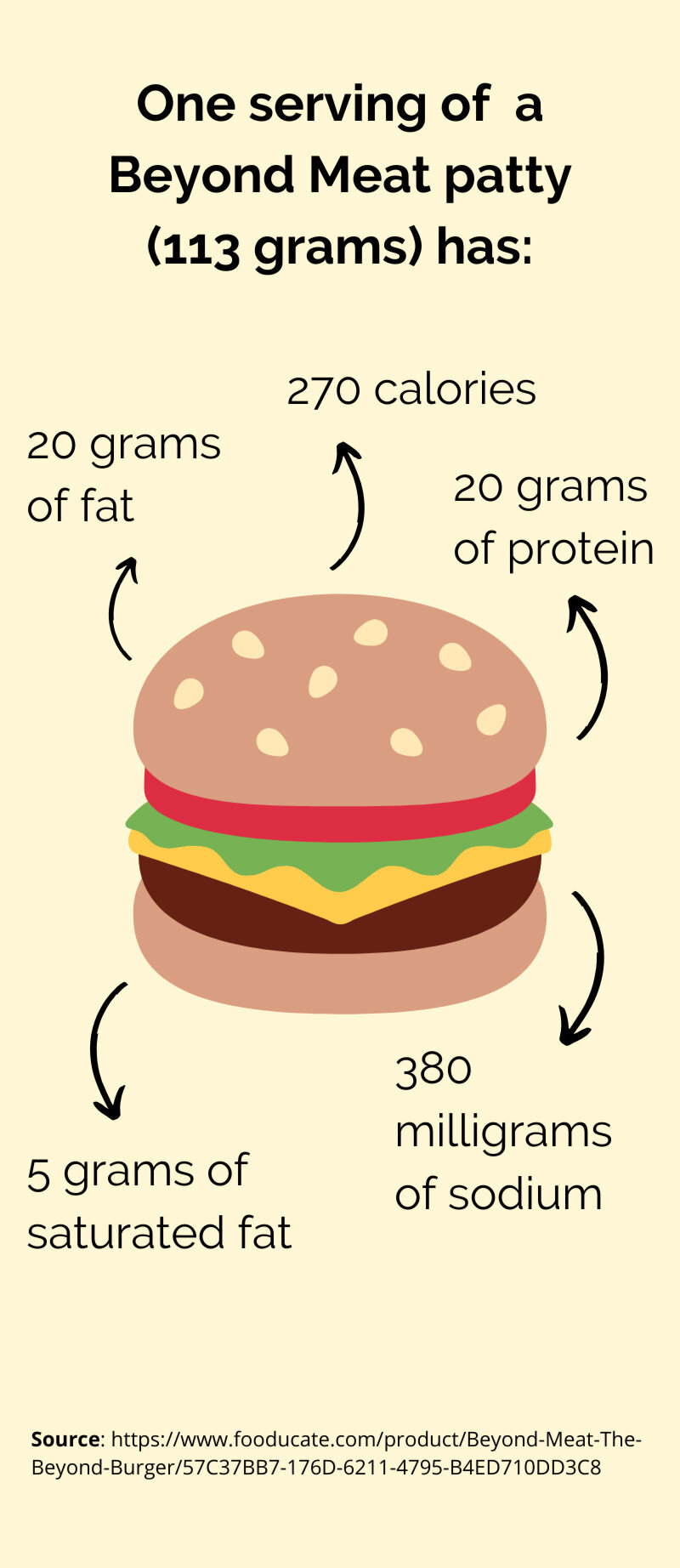From fast food restaurants expanding their menus to lab-grown options in supermarkets’ meat aisles, plant-based food is ample in Canada for a month of vegan eating and beyond.
By: Aru Kaul
(Valeria Boltneva/Pexels)
When you think of a plant-based diet, what comes to mind? You might think of fruits and vegetables, but what if I told you that burgers can also be a part of your meal plan? And if you need another reason to give plant-based food a go, we currently still have a few days until the end of Veganuary — a concept coined by the namesake non-profit that encourages people around the world to try veganism for at least the first month of the year.
In 2019, the Canada Food Guide started promoting plant-based proteins — a major change from previous years. This caused the plant-based diet to grow in popularity and it became adopted by many fast food restaurants.
In 2019 and 2020, McDonald’s tested a plant-based burger at select locations in Canada. In fall 2021, they came out with the McPlant burger in some American locations, which is made using a plant-based meat substitute called Beyond Meat. The burger has been more popular than expected.
This change echoes what many other fast food restaurants have been doing. Places like A&W, Burger King and KFC all have plant-based burgers made from either Beyond Meat or other plant-based meat substitutes such as Lightlife. Yes, you read that right — even Kentucky Fried Chicken has plant-based options.
However, as previously reported by CanCulture, not all plant-based fast food is as healthy as it seems. When making the transition to a healthy plant-based diet, Canadians should opt for beans, lentils, chickpeas, soy products like tofu and tempeh and whole grains.
A Los Angeles reporter reviews the McPlant burger in November 2021, shortly after the item hit stores.
A common misconception about plant-based protein is that it does not taste as good as real meat. However, a 2019 survey indicates that 80 per cent of Canadian respondents either like or love plant-based alternatives.
With its widespread availability, plant-based food has undoubtedly become more accessible. The number of people in Canada who eat a meat-free diet has increased. As of 2020, there are 2.3 million vegetarians and 850,000 vegans in Canada. In addition, the retail sales of plant-based meat substitutes have almost doubled since 2015.
It goes without saying that eating plant-based is the healthier option, but how healthy exactly? According to a 2021 study, a plant-based diet can reduce the risk of heart disease, high blood pressure, diabetes and even cancer! In comparison, the chemicals found in red and processed meat can increase the risk of cancer.
Not only does a plant-based diet improve an individual’s physical health, it can also boost mental health. According to the Nutrition Journal, this is because a plant-based diet has a lower intake of saturated and trans fats — which negatively affect mental health in high amounts.
A plant-based diet also has a lower carbon footprint than a meat-based diet — almost half, to be exact. A meat-based diet is one of the biggest causes of climate change. Meat production contributes to forest fires, deforestation and the use of toxic pesticides, which kill essential wildlife.
Now, over a quarter of the world’s entire land area is used for farm animals, so if everyone ate plant-based, this would result in 75 per cent less farmland being used. Continuing to make plant-based diets more accessible does not only benefit an individual’s personal health; it also benefits the environment.
The plant-based movement benefits the planet humans thrive on by limiting animal consumption. (Matthias Zomer/Pexels)
However, one of the biggest barriers to accessing a plant-based diet is the inability to make lifestyle changes. Traditionally speaking, meat is a large part of a Canadian diet. However, plant-based alternatives have resulted in Canadians changing their attitudes towards a plant-based diet: a 2020 survey shows that 40 per cent of respondents are willing to reduce their meat consumption.
Another barrier is the lack of understanding about a plant-based diet. The term is often used interchangeably with vegan or vegetarian, which can make people think they are not capable of following it. However, the term “plant-based” can mean any diet that is primarily made of food from plants, which means this can look like many different things. And with plant-based options at everyday fast food places helping to break both the accessibility barrier and the misunderstanding barrier, people are increasingly accepting that a plant-based diet is not as hard to adopt as they may have thought before!
So, what are you waiting for? Before Veganuary ends, try something new and see if it sticks!





